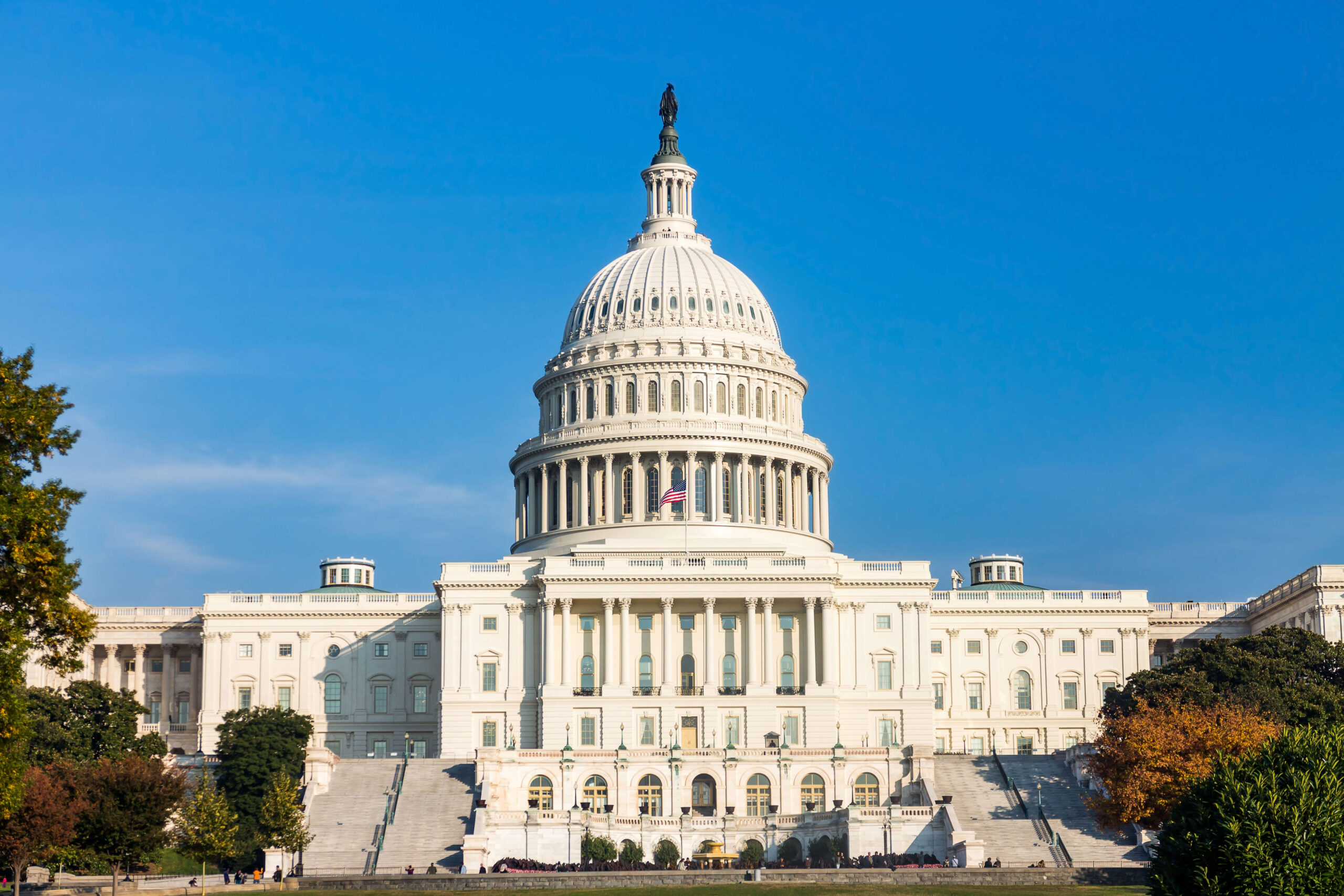Lawmakers Avoid Shutdown, Extend Government Funding Deadline. The U.S. Congress narrowly averted a federal government shutdown this week, as it approved a stopgap continuing resolution to keep the government funded and running through December 16, 2022. President Joe Biden is expected to sign the short-term measure today before the midnight deadline of September 30, 2022, when government funding will expire. The logjam broke when legislators agreed not to include Senator Joe Manchin’s federal permit streamlining plan in the funding package. While this is good news for the moment, it also means that Congress will need to revisit the shutdown drama in mid-December. The last time Congress punted federal spending beyond the midterm elections was in 2018, at which time Congress failed to come to an agreement, and the federal government shut down for a record thirty-five days from December 22, 2018, until January 25, 2019. Just sayin’…
House Pandemic Proxy Practice Persists. Speaking of Congress, House Speaker Nancy Pelosi (D-CA) extended the practice of voting by proxy until November 10, 2022, due to the effects of the COVID-19 pandemic. Members of the U.S. House of Representatives have been permitted to vote remotely since March 2020, and the practice would have expired on September 26, 2022.
NLRB Revises Mail-Ballot Standard. In a decision released on September 29, 2022, the National Labor Relations Board (NLRB) revised its six-factor analysis that regional directors should use for determining when a representation election should be conducted by mail balloting, as opposed to in-person voting, due to COVID-19. In the decision, the Board amended the existing second factor to allow for mail-ballot elections when the risk of COVID-19 transmission in a particular community level is “high,” based on the latest U.S. Centers for Disease Control and Prevention metric. (The previous second factor examined the fourteen-day trend of positive cases in the surrounding county.) Dissenting members Marvin Kaplan and John Ring criticized the majority’s failure to seek stakeholder input or expert opinion on the matter, as well as its failure to acknowledge the problems with mail-ballot voting. The dissent claimed that rather than “comprehensively explore both when it is or is not appropriate for Regional Directors to direct mail-ballot elections at this stage of the Covid pandemic,” the majority “simply substitut[ed] one imperfect basis for calculating voter risk with a different imperfect basis.”
IRAPs Scrapped. On September 26, 2022, the U.S. Department of Labor’s (DOL) Employment and Training Administration (ETA) finalized a rule rescinding the 2020 Industry-Recognized Apprenticeship Programs (IRAPs) regulation that implemented former president Donald Trump’s Executive Order (EO) 13801, Expanding Apprenticeships in America. According to a DOL announcement, “the department determined EO 13801 had created a duplicative, lower-quality system that was not in the best interest of workers and industries.” The final rule becomes effective November 25, 2022.
DOL IG Warns of Pandemic UI Fraud. A recent memo from the DOL’s Office of Inspector General (OIG) warns that the ETA paid out more than $45 billion in “potentially fraudulent unemployment insurance (UI) pandemic benefits” from March 2020 to April 2022. Worse, the memo states that despite the OIG’s previous suggestions for ways “to mitigate fraud and other improper payments to ineligible claimants, … ETA has not taken sufficient action to implement the[] recommendations.” The OIG implores the ETA to amend its regulations and guidance to ensure that state workforce agencies fully cooperate with audits, investigations, and oversight of the UI program to “prevent and detect fraud, waste, and abuse.”
OFCCP Revises FAAP Requirements. The Office of Federal Contract Compliance Programs (OFCCP) recently revised its directive setting forth the process for contractors wishing to request, modify, or renew Functional Affirmative Action Program (FAAP) agreements. In addition to permitting establishment-based affirmative action programs (AAPs), OFCCP also allows AAPs organized around contractors’ functional or business units, such as sales departments that span multiple establishments in different geographic areas. According to OFCCP’s announcement, “[t]he revised Directive provides clarification regarding procedural requirements, in addition to minor language and formatting changes.” The directive is effective as of September 21, 2022.
Triple Toe Loop Diplomacy. On September 29, 2022, the U.S. Senate confirmed Michelle Kwan, the most decorated figure skater in U.S. history, to serve as ambassador to Belize. Kwan, who skated through confirmation by voice vote, won a silver medal in the 1998 Winter Olympics (Nagano, Japan) and a bronze medal in the 2002 Winter Olympics (Salt Lake City, Utah), as well as five world championships and nine national titles. According to the U.S. Department of State’s Certificate of Competency, after her skating career, Kwan racked up significant victories in the public policy and diplomacy arenas. Of course, Kwan isn’t the first American to use her fame as a springboard to diplomacy. As an adult, actress Shirley Temple Black served as U.S. ambassador to Ghana (December 6, 1974–July 13, 1976) and Czechoslovakia (August 23, 1989–July 12, 1992).





